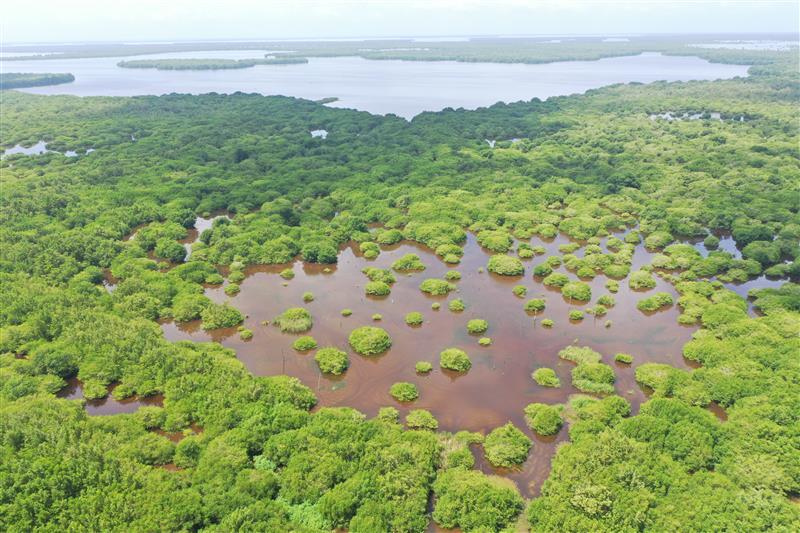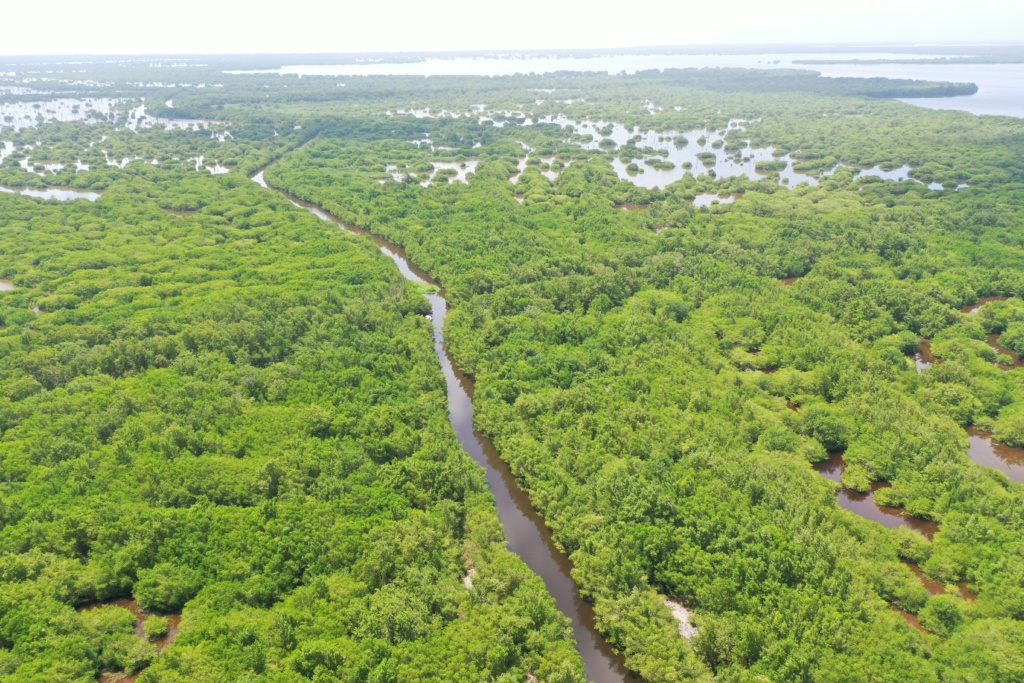A collaborative research initiative led by the Centre Tecnològic de Telecomunicacions de Catalunya (CTTC) and the Marine and Coastal Research Institute “José Benito Vives de Andréis” (INVEMAR) aims to support climate action by enhancing carbon stock measurements in Colombia’s Caribbean mangrove ecosystems. Recognized as crucial “blue carbon” habitats, mangroves play a unique role in sequestering and storing CO₂, yet they remain vulnerable to climate change and human impact, which threaten to release this stored carbon thus contributing to greenhouse gas emissions.

This project, which aligns with UN Sustainable Development Goal (SDG) 13 – Climate Action, SDG 14– Life below Water and SDG 15 – Life on Land, and also contributes to the goal of an Accessible Ocean in the Decade of Ocean Science, aims to create a comprehensive dataset combining field data, UAV technology, and remote sensing to accurately measure Above Ground Biomass (AGB) and Above Ground Carbon (AGC) in Colombian Caribbean mangroves. Through improved carbon stock estimates, the project might allow scientists and policymakers to make informed decisions to preserve these vital ecosystems and minimize emissions, supporting both climate change mitigation, biodiversity conservation and sustainable coastal development.
In addition to informing policy, this project might contribute to financial mechanisms such as blue carbon projects, payments for ecosystem services, and frameworks like the UN’s REDD+ program, which encourage mangrove preservation by offering economic incentives. By improving our understanding of mangrove carbon storage, CTTC and INVEMAR are also setting the stage for scalable solutions that can benefit mangrove ecosystems worldwide.
This work was carried out with support from Lacuna Fund, and Deutsche Gesellschaft für Internationale Zusammenarbeit (GIZ).

